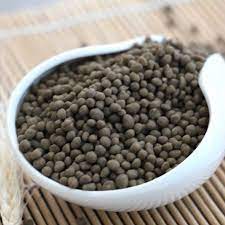Welcome To ChemAnalyst

In the worldwide market, DAP prices have been steadily climbing for some time. The world's most widely used fertiliser, diammonium phosphate (DAP), hit a new high last week, up 16 percent from the prior month. Rising downstream fertiliser prices are putting a huge strain on farmers all around the world. The disruption of fertiliser and commodities markets will have far-reaching effects for farm incomes, agricultural yields, and fertiliser prices, whether it is due to ongoing supply chain concerns or the aftermath from Russia's deliberate invasion of Ukraine.
Fertilizer costs have risen due to the situation in Ukraine, which were already exorbitant. Russia is the world's largest fertiliser exporter, but its invasion of Ukraine has hampered both nations' trading capacities. The Russian government ordered fertiliser producers to suspend shipments in early March. Russia is also one of the top five exporters of DAP. Except for anhydrous Ammonia, fertilizer prices in the United States remained relatively stable in the second half of April. The cost of diammonium phosphate DAP 18-46-0 varied between USD475/MT and USD536/MT. The average was USD 503/MT, an increase of USD 3.
Farmers are forced to reduce production or apply less fertilizer due to the rising prices, risking lower harvests. Even if the Russian invasion ended shortly and inflation fell, rising fertilizer costs would have a long-term impact on the market, putting a strain on supplies.
India and Russia have agreed to deliver DAP (Di-Ammonium Phosphate) fertilizer on a long-term basis. This Memorandum of Understanding (MoU) was signed to assure the supply of DAP Fertilizer at consistent pricing. Furthermore, local traders are accused of buying fertilizers from importers rather than dealers in violation of government regulations. Farmers are being forced to purchase this subsidized fertilizer at a higher price because fertilizer is winding up in the hands of unauthorized sellers. Farmers have also claimed that there is no field monitoring.
As per ChemAnalyst, "Higher input expenses and fuel and transportation had put pressure on farmers' budgets around the world. Since last quarter, European natural gas prices have been at all-time highs, keeping DAP prices high and its availability limited in the region. Increasing energy costs, supply constraints, and trade policies have pushed up prices. Indian farmers will face an increase in farmgate pricing of nutrient-based fertilizers if prices continue to rise substantially, affecting crop planting. According to traders, a reduction in sowing area could lead to a drop in production, forcing the country to rely on imports of pulses and oilseeds during the next marketing season."
We use cookies to deliver the best possible experience on our website. To learn more, visit our Privacy Policy. By continuing to use this site or by closing this box, you consent to our use of cookies. More info.
